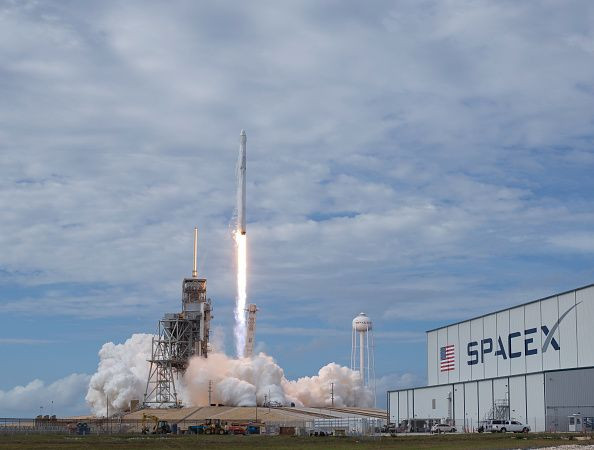SpaceX Funding: Musk's Company Raised $100 Million More Than Reported In SEC Filings

SpaceX filed an amendment to the United States Securities and Exchange Commission Monday that shows that the company actually raised $100 million more than previously reported on a filing from this summer.
The amended filing shows roughly $450,000,000 was raised during the last funding round rather than the previously reported $350,000,000. "This filing simply discloses that SpaceX received an additional $100 million of investment as part of the last funding round which was disclosed earlier this summer," a SpaceX spokesperson told Tech Crunch.
While the company has had a year with far more successful launches than any year prior, it’s also suffered a few setbacks, including an explosion on a launchpad during testing. Two large launches were delayed recently, the Zuma and Falcon Heavy missions. There’s no word yet on when these rockets and payloads will launch.
The Zuma payload is a secret mission that the company is trying to especially careful with and is trying not to rush. While the Falcon Heavy launch will be the maiden launch of the largest rocket on Earth, if successful. Both are delayed until an undetermined date.
While there are several delayed launches the company also has a launch to the International Space Station scheduled for Dec. 4 as part of its contract with NASA. Additionally, the company and its founder and CEO Elon Musk revealed plans to develop a massive rocket that could ease travel around the world and an updated plan for launching people to the moon and to Mars.
The company pioneered reusable rockets, a significant way that it can save money while completing launches to and from the ISS and in the future, to and from other celestial bodies in space. Musk has previously said that the only reason he is personally accumulating wealth is so that one day he will have enough to money to offset the sky high price tag on space travel, especially interplanetary space travel.
"I really don't have any other motivation for personally accumulating assets, except to be able to make the biggest contribution I can to making [humans] multiplanetary," he said at the International Astronautical Congress in 2016. He’s put previous estimates for a ticket to Mars at $10 billion a person, a price he believes needs to come down, significantly, for creating a colony on Mars to become a realistic option. Musk’s personal net worth is currently nearly $20 billion, according to Forbes. By his estimates that’s just about two tickets to Mars, and something most people don’t have.
© Copyright IBTimes 2025. All rights reserved.



















